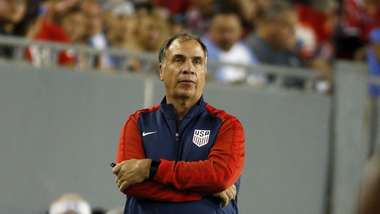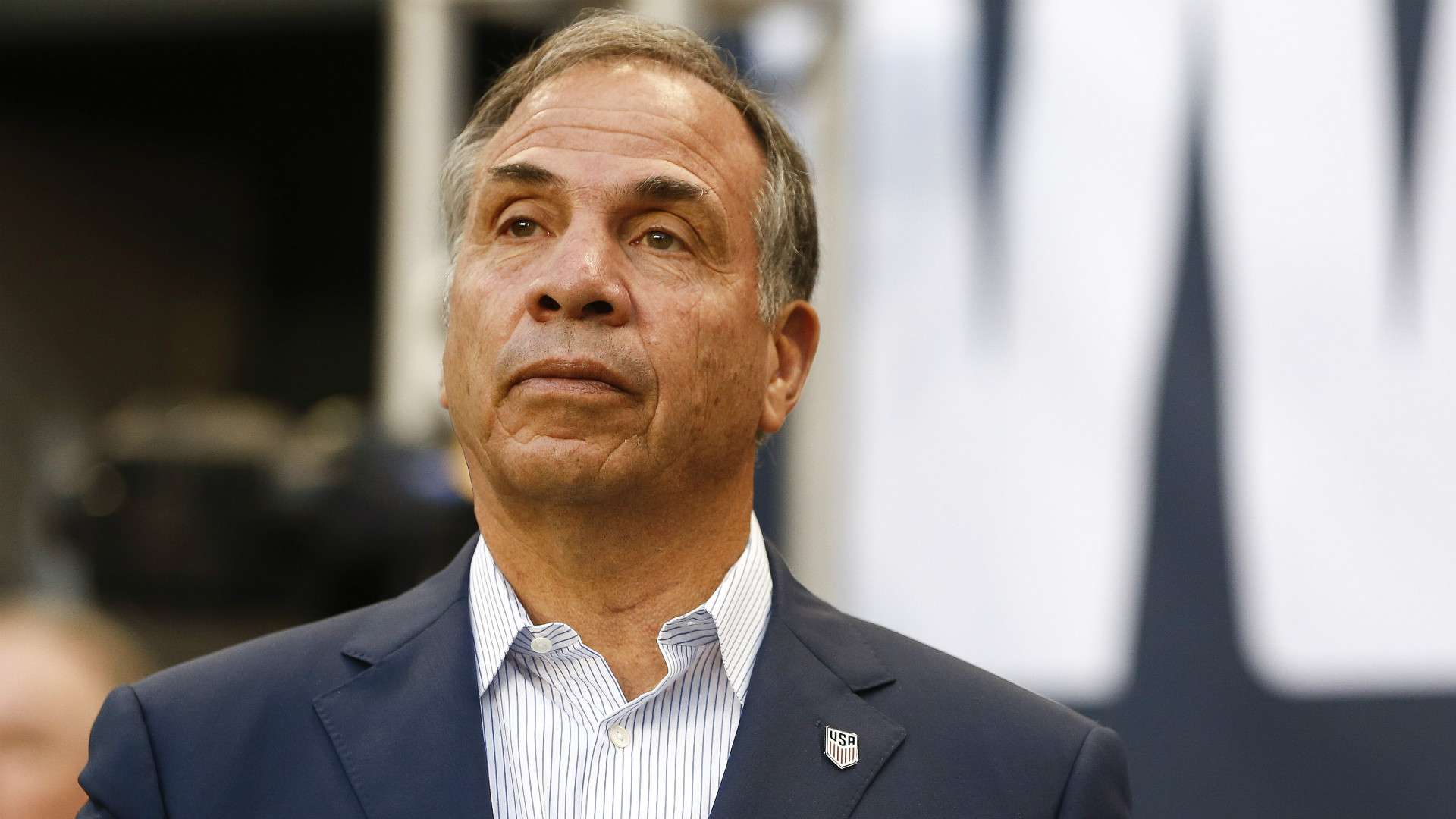Bruce Arena knows a few things about building a winner in Major League Soccer and about transforming a club in need of direction.
He also knows about repairing a damaged reputation.
Arena has five MLS Cup titles on his resume, two from his time as D.C. United's first coach and three from when he rebuilt the LA Galaxy, transforming them from laughing stock to dynasty. That track record should have Revolution fans drooling and the rest of MLS a little worried, but the reaction to Arena's hiring is instead one clouded in skepticism because of his last job as a coach.
The U.S. national team's World Cup qualifying failure is a scarlet letter that everyone involved with the loss is still wearing more than a year later, and nobody has been left with a bigger villain tag than Arena. He was called on to clean up the mess left by Jurgen Klinsmann and failed at that task, resulting in the U.S. national team missing its first World Cup since 1986.
That failure turned Arena from the most successful coach in American soccer history to the man most responsible for the most disappointing moment in American soccer history. At least in the eyes of some.
Arena didn't do himself any favors when he went on television shortly after that loss and sounded like someone completely oblivious to the gravity of his failure and the amount of blame he deserved for it.
As bad a scar as that loss is on Arena's legacy, it doesn't change the fact that Arena has built championship teams before, most recently rebuilding the LA Galaxy into an all-time great dynasty. Arena was running the Galaxy in 2016 when U.S. Soccer gave him the second chance to lead the USMNT that he had always craved, and the Galaxy completely fell apart the season after Arena left.
Arena is as qualified for the task of rebuilding New England as anybody, but what you can't call him is a "can't-miss" hire.

The notion of Arena being unable to fail died on that painful night in Trinidad. The hope in New England has to be that the failed World Cup qualifying campaign is a harsh lesson that will help make Arena better-prepared to lead the Revs, much like the mistakes he made during his stint with the New York Red Bulls prepared him to succeed with the Galaxy.
As strong an MLS resume as Arena has, it can't be overlooked that his last MLS reclamation project began more than a decade ago, and it took place with a team that had the resources and committed ownership in place to provide what Arena needed to turn things around quickly. A decade later, Arena is taking over a Revolution team notorious for having detached ownership that has never been known for being willing to spend big on the squad.
If Robert Kraft doesn't loosen up the purse strings and take an ownership approach more closely resembling that of Atlanta’s Arthur Blank, who opened his checkbook and helped build a champion in two years, rather than Colorado's Stan Kroenke, who seemingly couldn't care less about his MLS team, then Arena will find it much tougher to win in New England than it ever was in Los Angeles.
Arena is also stepping back into a league that has changed considerably in recent years. Clubs now having more money to spend on rosters thanks to the infusion of targeted allocation money (TAM) and general allocation money (GAM), which has allowed for an increased push into the international market.
Arena's MLS success has been built on his ability to identify talent in the United States and the Concacaf region. Being able to successfully recruit talent from outside those regions is key to success in present-day MLS, as Revs fans can attest after years of watching their team falter at trying to secure difference-making foreign talent. That isn't to say Arena is a stranger to recruiting talent from outside the region, having brought Juan Pablo Angel and Robbie Keane to MLS, two of the better foreign signings to grace the league, but now he's competing with a league full of teams that have resources to spend rather than being one of the select few with the spending power to land impact players.
 Getty Images
Getty ImagesArena insisted on, and received, full control of the Revolution, much as he had with the Galaxy, so the responsibility will be his and his alone as he rebuilds and revamps the Revs roster and works to establish a winning culture in a team that has struggled for years. It's tough to think Arena would have taken the job without some assurances that Revs ownership would give him the resources he needs to compete in a league where teams like Los Angeles FC, Toronto FC and Atlanta United are sparing no expense in their quest to build champions and title contenders.
Arena has built winners before, and he has also succeeded in reviving his career before. When he wasn't rehired by the USMNT after the 2006 World Cup, Arena jumped into coaching the New York Red Bulls and a two-year stint followed with mixed results before he was forced out. Arena responded by taking over the Galaxy and building the best dynasty MLS has ever seen, while restoring his status as the best coach in American soccer history.
He could have retired on that high but couldn't resist when the opportunity came to coach the U.S. national team one more time.
Now Arena finds himself trying to restore his reputation once again. As tough a task as he may be facing in New England, he has a trophy case full of MLS Cup titles that suggests that if anyone can pull off this double reclamation project — of the Revs and his legacy — it's Arena.


